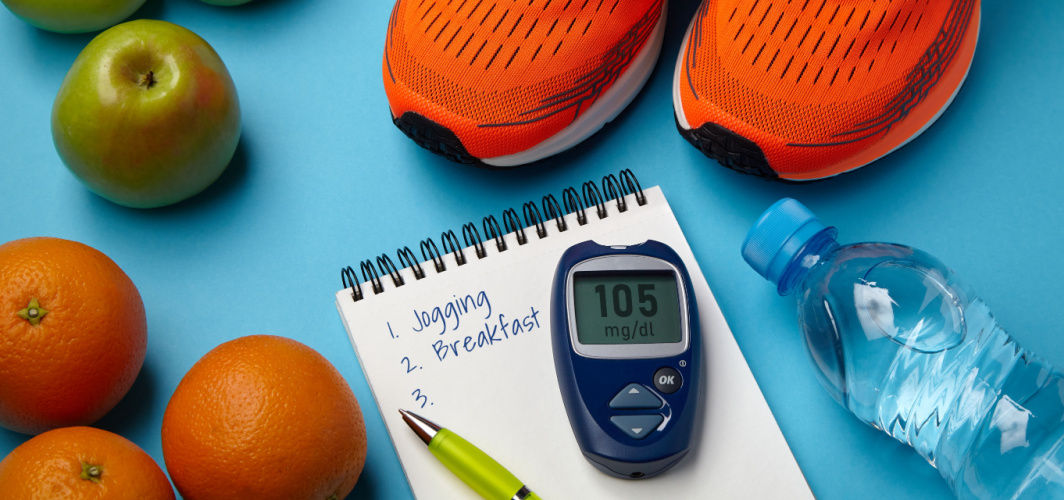Diabetes Management
Stress and Kidney Disease: Is There a Relationship?
4 min read
By Apollo 24/7, Published on - 26 February 2021, Updated on - 14 June 2023
Share this article
1
15 likes

Stress is the natural response of the body to a threatening or challenging situation. Several things can trigger stress, from daily hassles to major life events. Various research pieces have concluded that prolonged stressful events can worsen or increase the risk of developing heart diseases, kidney disease, obesity, diabetes, gastrointestinal problems and asthma. In a recent study, scientists concluded that stress-related disorders can increase the risk of developing acute kidney injury and chronic kidney disease.
What are stress-related disorders?
Stress-related disorders (SRDs) are a group of disorders that occur due to excessive or prolonged stressful events such as losing a loved one, getting treated for a life-threatening illness or a natural calamity. These events increase the vulnerability of the person to mental health illnesses such as post-traumatic stress disorder (PTSD) and adjustment disorder.
The study
In the recent study published in the journal Kidney International Reports on 13th January 2021, scientists from the Department of Medical Epidemiology and Biostatistics, Sweden, conducted extensive research to find out the effects of stress-related disorders on the commencement and progression of kidney diseases.
In this research, scientists divided the participants of the Stockholm Creatinine Measurements [SCREAM] project into two categories:
- Exposed group: 30998 patients with a diagnosis of stress-related disorders or SRDs (71% women)
- Control group: 116677 patients with no disease (69% women) matched by age and sex
All these participants were in the age group of 35 to 57 years. Scientists tested the serum creatinine and glomerular filtration rate (GFR) of all the participants from 2006 to 2011.
The primary aim of the study was to determine the effect of SRDs on the progression of chronic kidney disease (CKD). CKD is said to be progressing if the patient shows a decline of over 40% in GFR or requires kidney replacement therapy.
The secondary aim was to determine the effect of SRDs on the development of acute kidney injury, which is marked by a rapid increase in creatinine levels. A decrease in GFR or increase in creatinine levels indicates improper functioning of one or both kidneys.
Results of the study
The results of the study showed that:
- After 3.2 years of follow-up, scientists found that participants diagnosed with SRDs were at a 23% higher risk of chronic kidney disease progression and a 22% higher risk of acute kidney injury, compared to the control group irrespective of any other comorbidity or medications.
- The risk of developing acute kidney injury was seen to be highest in the first year of follow-up, while the risk of CKD persisted throughout the study.
With this study, scientists concluded that stress-related diseases increase the risk of acute kidney injury and chronic kidney disease. However, further studies would be required on this topic to confirm this observation and to examine the underlying mechanism.
They further stated that people diagnosed with SRDs must get their kidney function monitored to prevent any damage.
To evaluate your kidney health, Book Apollo's Kidney Check Test
What can be done to relieve stress?
It is normal to feel stressed at times, but some ways can help a person deal with their stress effectively. Some of these include:
- Share your problems with your parents, friends, counsellor or a loved one, as it would help in coping with stress better.
- Try not to indulge in stress-eating, alcohol, too much caffeine or drugs as they could increase stress levels.
- Do not skip meals; rather, consume a healthy balanced diet filled with fresh fruits and vegetables to improve the mood.
- Exercising is one of the best ways to cope with stress as it releases endorphins (happy hormones) in the body. Practise moderate-intensity exercises such as jogging, swimming, cycling or yoga to feel healthier and better.
- Avoid the use of cigarettes and other forms of tobacco as the nicotine present in them may provide some relief, but it is short-lived. Nicotine increases the stress burden by reducing the blood flow and declining the ability to breathe.
- Practise relaxation techniques such as deep breathing, mindfulness meditation, muscle relaxation exercises and imagery to reduce stress levels.
- Find out the triggers of stress and make changes to tackle them. As a simple example, setting the watch 5-10 minutes ahead can avoid the stress of being late.
- Set time aside for things you enjoy, be it sewing, reading a book or watching a movie.
Recommended Read: Health Tips to Manage Stress
Conclusion
Prolonged stress can increase heart rate and blood pressure, which can cause various systemic diseases. In the study mentioned above, scientists concluded that people suffering from stress-related disorders are at increased risk of developing kidney diseases. People must exercise and practise mindfulness to reduce their stress levels. People can also reach out to mental health experts if they require help.
You can also manage your diabetes like a pro with Apollo 24|7's 12-week empower programme.
Medically reviewed by Dr Sonia Bhatt
Diabetes Management
Leave Comment
Recommended for you

Diabetes Management
Tips For Maintaining Stable Blood Sugar Levels
Blood Sugar levels can be maintained by lifestyle changes such as a balanced diet, meal planning and exercise.

Diabetes Management
Aerobic or Resistance Exercises: Which One is Ideal to Manage Blood Sugar?
The American Diabetes Association recommends a combination of aerobic exercises like brisk walking or cycling (at least 150 minutes per week) and resistance training like weightlifting (2-3 sessions per week) for people with diabetes. Aerobic exercises help lower blood sugar by using glucose for energy and improving insulin sensitivity, while resistance exercises improve muscle strength and promote glucose uptake, aiding in blood sugar control.

Diabetes Management
3 Common Mistakes to Avoid While Blood Sugar Testing
Effective diabetes management relies on precise blood sugar testing and lifestyle adjustments. These include not pricking the same finger daily, maintaining proper hand hygiene, and timing tests correctly (preferably before eating or waiting two hours after a meal). Accurate testing empowers individuals to collaborate effectively with their healthcare teams, make informed decisions about diet, medication, and lifestyle, and ultimately take better control of their condition for a stress-free and healthier life.
Subscribe
Sign up for our free Health Library Daily Newsletter
Get doctor-approved health tips, news, and more.
Visual Stories

8 Fruits That are Incredibly Healthy for Diabetes
Tap to continue exploring
Recommended for you

Diabetes Management
Tips For Maintaining Stable Blood Sugar Levels
Blood Sugar levels can be maintained by lifestyle changes such as a balanced diet, meal planning and exercise.

Diabetes Management
Aerobic or Resistance Exercises: Which One is Ideal to Manage Blood Sugar?
The American Diabetes Association recommends a combination of aerobic exercises like brisk walking or cycling (at least 150 minutes per week) and resistance training like weightlifting (2-3 sessions per week) for people with diabetes. Aerobic exercises help lower blood sugar by using glucose for energy and improving insulin sensitivity, while resistance exercises improve muscle strength and promote glucose uptake, aiding in blood sugar control.

Diabetes Management
3 Common Mistakes to Avoid While Blood Sugar Testing
Effective diabetes management relies on precise blood sugar testing and lifestyle adjustments. These include not pricking the same finger daily, maintaining proper hand hygiene, and timing tests correctly (preferably before eating or waiting two hours after a meal). Accurate testing empowers individuals to collaborate effectively with their healthcare teams, make informed decisions about diet, medication, and lifestyle, and ultimately take better control of their condition for a stress-free and healthier life.